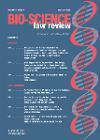Bio-Science Law Review - Volume 16 - Issue 4

Articles
THE COMMISSION'S PUBLIC CONSULTATION ON SUPPLEMENTARY PROTECTION CERTIFICATES AND PATENT RESEARCH EXEMPTIONS FOR SECTORS WHOSE PRODUCTS ARE SUBJECT TO REGULATED MARKET AUTHORISATIONS
Trevor Cook Wilmer Cutler Pickering Hale and Dorr LLP
On 12 October 2017 the European Commission initiated a 'Public consultation on Supplementary Protection Certificates and patent research exemptions for sectors whose products are subject to regulated market authorisations'. Its purpose is to help the Commission 'assess whether the EU SPC framework is still fit for purpose or needs to be recalibrated, notably as regards the aspects set out in the Single Market Strategy'. The Commission has indicated that such 'recalibration' could comprise three element, the creation of a European SPC title, an update of the scope of EU patent research exemptions and the introduction of an SPC manufacturing waiver. This article discusses the background to each of the three elements.
WHAT IMPACT WILL THE INTRODUCTION OF THE UNITARY PATENT AND THE UNIFIED PATENT COURT HAVE ON LIFE SCIENCES COMPANIES AND HOW SHOULD THEY PREPARE
Katie Atkinson
BPP University Law School
The importance of patents to the life sciences sector is undeniable. The revocation of key pharmaceutical patents can often affect the share price of a company considerably. Furthermore, life sciences companies face unique patent issues, for example in relation to Supplementary Protection Certificates (SPCs) and exemptions. This article is designed to help legal practitioners guide life sciences clients through the unprecedented challenges they face navigating the new unitary patent system and to help them capitalise on the new opportunities available. Although full implementation of the proposed system is several years away, patents filed under the current regime are likely to fall under at least part of the new regime, so both practitioners and life sciences clients need to educate themselves about the changes the new regime will bring and the impact this will have on the patent strategy of clients in this sector. This article will also try to highlight comparisons between the impact of the Unitary Patent Court for clients in the life sciences sector and those in other sectors, such as the telecoms and energy sectors.
NOVELTY AND INFRINGEMENT OF PERSONALISED MEDICINE PATENTS
Paul England Taylor Wessing LLP, London
Like new small molecule drugs, significant investment is required for the discovery and development in the growing area of personalised medicines. Intellectual property protection is therefore key to obtaining the market exclusivity needed to make these commercially viable. The most powerful form of exclusivity protection used for pharmaceutical products is patents. How does the UK law of patents apply to personalised medicines, in particular regarding novelty and infringement? This article explains what personalised medicines are and the questions they pose for patent protection in the United Kingdom.
Case Comments
EU POSITION PAPER ON IP AND BREXIT: JUST THE BEGINNING
Louise Popple and Paul England Taylor Wessing LLP, London
The EU Commission recently released its position paper setting out the approach it intends to adopt in negotiations with the United Kingdom as regards the treatment of IP rights post-Brexit. Since many areas of IP law are harmonised across the EU and EU-wide unitary rights exist, Brexit will have a significant impact on this area of law. Whilst there are some notable omissions, the Commission's paper provides welcome insight into what the UK and EU IP regimes might look like post-Brexit, particularly as regards pending and granted EU-wide rights, Supplementary Protection Certificates and parallel imports. This article sets out the key provisions of the paper and considers the potential implications for rights-holders.
THE LIFE SCIENCES SECTOR DEAL: PROLONGING THE LIFE SCIENCES SECTOR'S LONG-TERM LIFE
Sarah Hanson and Hannah Curtis Cameron McKenna Nabarro Olswang LLP
The authors present an overview of the UK Government's Life Sciences Sector Deal contained in its Industrial Strategy White Paper and examine the extent to which the Deal implements the recommendations of Professor Sir John Bell's report on life science industrial strategy.
THE 'PLAUSIBILITY' REQUIREMENT AT THE EPO: CASE T 488/16 DASATINIB/BRISTOL-MYERS SQUIBB
Will Nieuwenhuys Marks & Clerk LLP
A 'plausibility' requirement has been part of the established jurisprudence of the Boards of Appeal of the European Patent Office for many years. A recent decision relating to the anti-cancer drug Dasatinib® provides a stark example of its application to small molecule pharmaceutical subject-matter and underlines the importance of ensuring that sufficient material is included in patent applications at the time of filing to ensure that important technical effects are at least made plausible.
AN SPC HAT-TRICK: A THIRD REFERRAL UNDER ARTICLE 3(a) HEADS TO THE CJEU
Andrew Hutchinson and Nicholas Fischer Simmons and Simmons
The UK Court of Appeal has referred another question to the CJEU seeking clarity concerning the correct interpretation of Article 3(a) of the SPC Regulation. This makes it a hat-trick of referrals trying to understand what it means for a product to be 'protected' by a patent. This referral follows Sandoz's appeal of Arnold J's first instance decision, in which the outcome was held to be clear (in favour of SPC grant), even if the legal test was not. The UK Court of Appeal has therefore overturned Arnold J's decision, stayed the appeal and referred another question to the CJEU.
